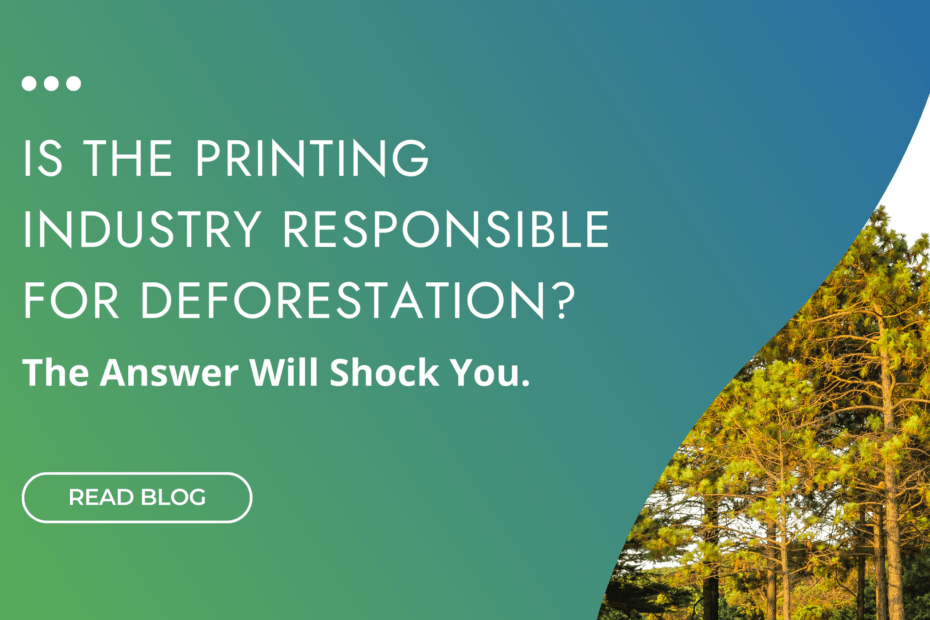When it comes to deforestation, most people are quick to blame obvious wood consumers like publishers, printers, and the paper industry.
After all: what industry could possibly use up more trees than booksellers, right?
But you might be surprised to learn that even though paper is the leading use for felled trees, paper companies and printers are not the leading cause of deforestation.
Read on to discover the unlikely reasons deforestation is a global problem, and how printing companies are making a difference when it comes to preventing deforestation!
The Largest Contributors of Deforestation (Hint: It’s Not Books)
Deforestation is defined by the UN Food and Agriculture Organization (FAO) and other credible environmental organizations as “the permanent conversion of forestland to non-forest uses”.
And while the loss of trees and rainforest is indeed a global issue, it’s nowhere near close to being the sole responsibility of paper companies and book publishers.
According to a recent study done by the National Wildlife Federation, the leading cause of deforestation in the well-known Brazilian Amazon is due to an expansion of cattle rearing. In just seven years, the rate of beef farming jumped a whopping 25%, contributing to the permanent erasure of almost 62 million hectares of trees.
Other contributing factors to the erasure of forests both domestically and abroad include logging, property development, and of course: the ever-present threat of climate change.
The question remains: with the majority of wood and paper still being sourced from natural forests and rainforests, where does the printing industry land in terms of environmental impact?
Reversing the Impact of Deforestation
The UN FAO reports that those areas of the world which consume the greatest amount of wood actually have the least amount of deforestation – areas like the United States and Canada.
Thanks in great part to the sustainable forestry practices advocated by the paper and forest products industry, the annual increase in U.S. tree volume is roughly twice the amount that is harvested (US Forest Service, USFS).
In fact, in the U.S., 68% of paper and paper-based packaging gets recycled, and the recovery rate for corrugated cardboard stands at an amazing 91%!
How You Can Play a Role In Preventing Deforestation
Those who genuinely want to solve the problem of deforestation and its climate change impacts need to stop following the “dictates of their passion” and focus on real world, fact-based solutions that will make a meaningful difference for our planet.
A great example of actively resisting harmful environmental practices is partnering with companies, printers, publishers and more who value a small environmental footprint.
JPS Books + Logistics is proud to be an eco-conscious, family run printing company with a focus on minimizing consumption and maximizing the use of available materials.
Are you ready to bring your next print project to life, sustainably? Let us help you!
Get your FREE consultation below:


